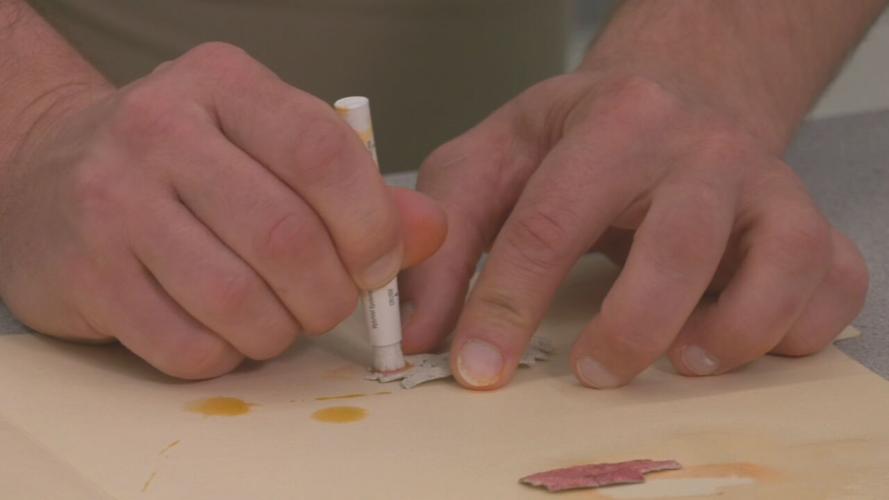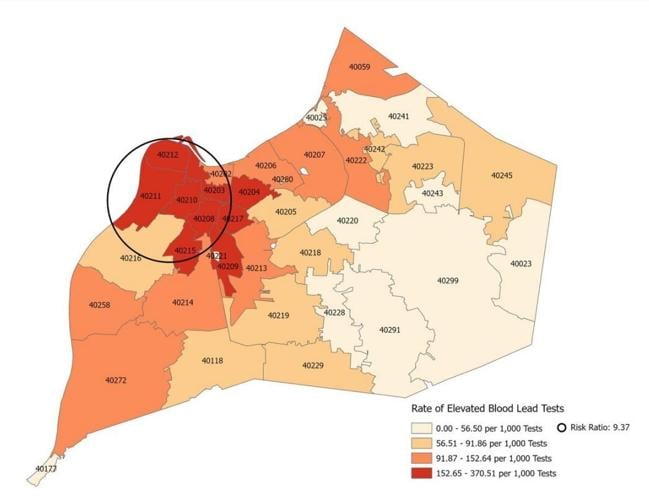LOUISVILLE, Ky. (WDRB) -- Louisville rental property owners with homes built before 1978 will now be required to have them inspected for lead.
It's part of the city's new Lead-Safe Housing Registry, aimed at protecting tenants from the harms of lead poisoning.
"Lead poisoning is a preventable public health threat, and children in our underserved communities are especially impacted," Louisville's Chief Health Strategist Connie Mendel said in a news release. "Data shows children living in the northwest area of the city are almost 10 times at greater risk for developing lead poisoning compared to other children living in other areas of the county."
Louisville Metro Council passed an ordinance in December 2022 requiring landlords to test for and remove any lead found at their properties, specifically properties built before 1978.
A Kentucky Certified Lead Risk Assessor will conduct the inspections and identify whether or not there are lead hazards in a home.
If lead is found on a property, it must be removed. Louisville's health department said lead-based materials have to be "controlled through enclosure, encapsulation or abatement by a certified professional."
All inspections and work done have to be documented by the landlord, who must also register the property through the new Lead-Safe Housing Registry.
The timeline for getting the inspections done is broken up into phases, with homes built before 1940 taking priority.
Landlords may be eligible for a grant to help cover the costs of removing lead-based paint hazards.
The ordinance also requires landlords to disclose any lead hazards, and the plan to remediate, them to any current and/or prospective tenants, according to a news release.
The registry, managed by the Louisville Metro Department of Public Health and Wellness, opened Dec. 1, but is being put out in phases. Property owners will have a year to comply with the guidelines.
The U.S. Centers for Disease Control and Prevention said homes built before 1978, the year lead-based paints were banned for residential use, may contain lead hazards.
Children under the age of 6 and pregnant women are more at risk for developing health issues cased by exposure to lead. That includes cognitive impairment, behavioral issues and developmental delays.
Pregnant women can pass the effects of lead exposure on to their unborn baby. That can cause issues like premature birth, low birth weight, learning and behavioral issues, even miscarriage and stillbirth.
There are no "safe levels" of lead in someone's blood, according to the CDC. It can enter the body through inhalation or ingesting "particles found in lead-contaminated paint, dust, soil or drinking water."

Louisville's health department shared the five local zip codes with the highest concentration of elevated blood lead tests, and the highest concentration of housing built before 1978, include: 40203, 40210, 40211, 40212 and 40215. (Louisville Metro Department of Public Health and Wellness map)
Louisville's health department shared the five local zip codes with the highest concentration of elevated blood lead tests, and the highest concentration of housing built before 1978, include: 40203, 40210, 40211, 40212 and 40215.
To learn more about the city's efforts to reduce lead hazards, click here.
Health officials said nearly 10,000 children in the Louisville Metro tested positive for elevated blood-lead levels between 2005 and 2021. To learn more about preventing childhood lead poisoning, click here.
More Local News:
- Tracy Davenport must pay restitution to victims she stole from, southern Indiana judge rules
- 5th man charged in murder of southern Indiana teenager at Harvest Homecoming
- Ellie Brown, Louisville entrepreneur and former owner of Kentucky Colonels, dies at 84
- Feeling stressed around the holidays? Louisville experts offer 4 tips to cope
Copyright 2024 WDRB Media. All Rights Reserved.














